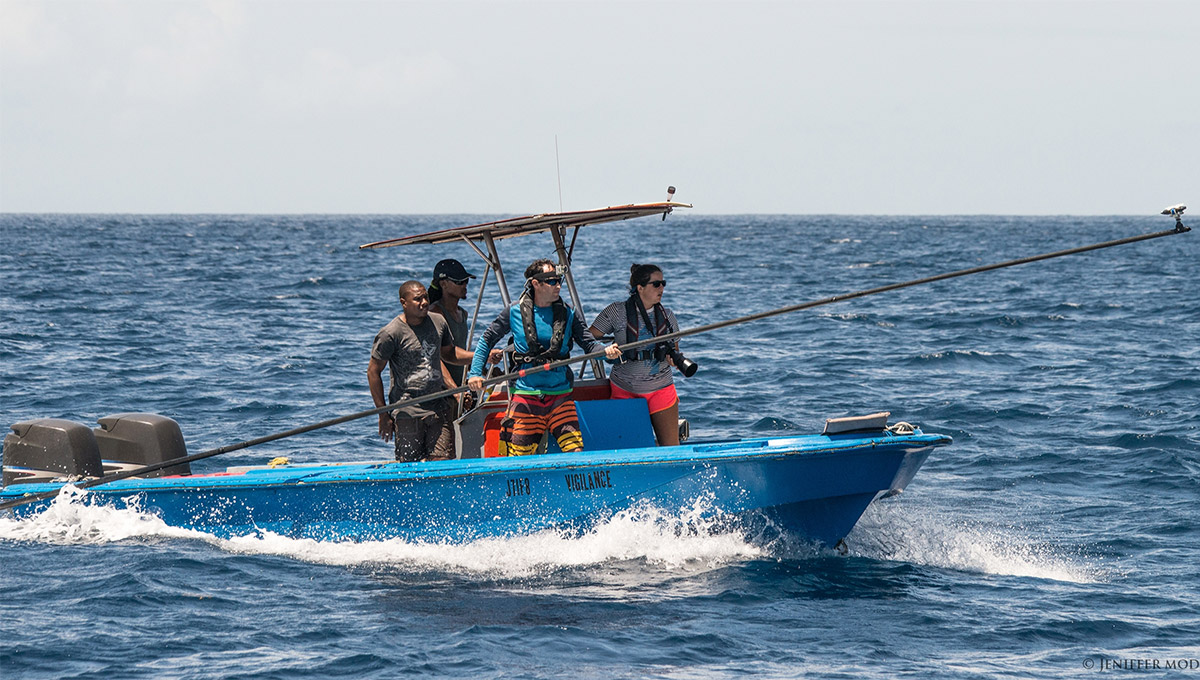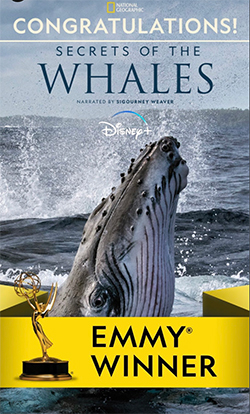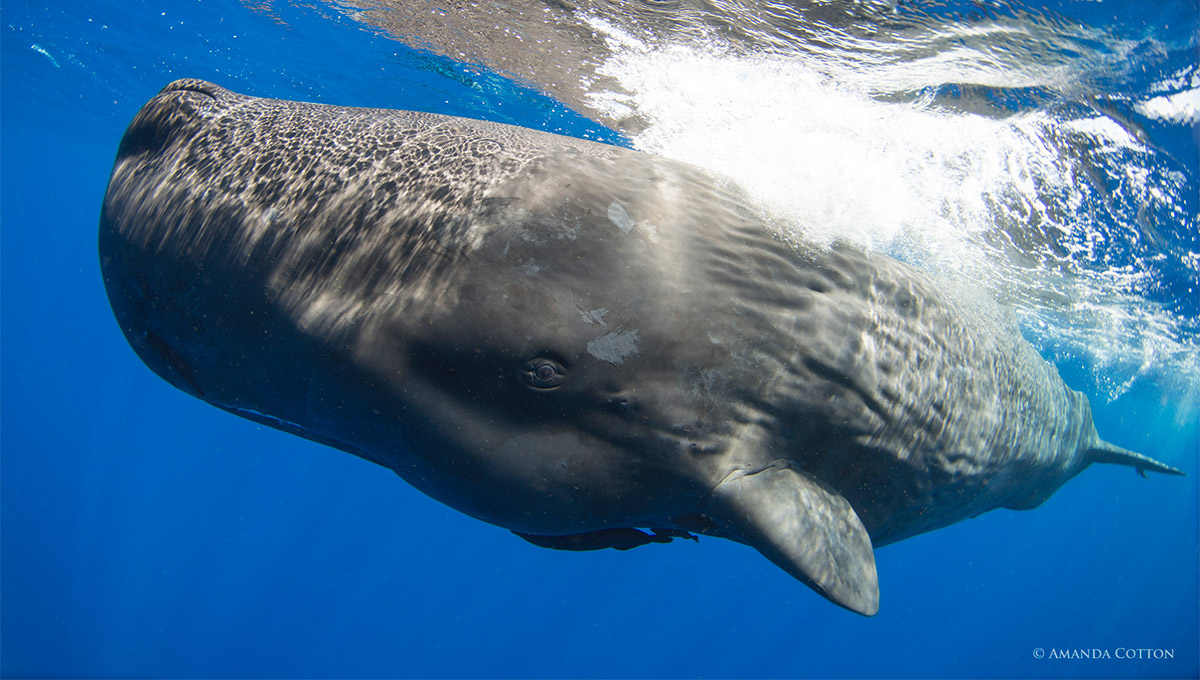Photos courtesy of The Dominica Sperm Whale Project
By Tara Jackson
It was a late-night text that let biologist and Carleton Scientist-in-Residence Shane Gero know that his work had garnered Hollywood accolades. Secrets of the Whales took home this year’s Emmy in mid-September for Outstanding Documentary or Nonfiction Series, and much of the show’s subject matter comes from Gero’s research on the intricacies of whale culture and social structures.

Scientist-in-Residence Shane Gero
“Biologists aren’t typically involved in the Emmys,” says Gero, “but I’m really proud that my research helped to launch this incredible storytelling that shared the lives of these amazing animals.”
Gero has been researching whales for almost two decades and has a particular interest in exploring the culture and social structures inherent in whale families. About four years ago, a photographer with National Geographic wanted to capture Gero’s novel work with families of sperm whales off the coast of Dominica, in the eastern Caribbean Sea.
Gero was keen to shine a wider spotlight on these aquatic creatures and managed to convince the writer and photographer to focus on the bigger challenge of safeguarding species that have cultures.
“We wanted to shift the perception about whales, to see them as complex creatures with differences owing not just to genetics but also to their cultures,” says Gero.
“The story needed to be about an understanding of these animals’ cultures to drive the conservation of these unique species.”

Framing the scientific narrative
Not only was the National Geographic Society interested in telling a broader story, so was Disney+, and from there Gero’s involvement in the project snowballed. Secrets of the Whales took three years to produce and involved filming Orcas, humpbacks, belugas, narwhals and sperm whales in dozens of locations around the world.
“Early on in the process, it was about helping the production company paint a picture of what the narrative should be,” says Gero.
“The public knows what culture means from a human perspective but explaining whale culture is more of a challenge.”
 Gero provided scientific consultation on the series and also interpreted the whales’ behaviour, which is captured in breathtaking footage and scripts that would eventually be voiced by actor Sigourney Weaver, who narrates the series (her narration was also nominated for an Emmy). Gero credits the series producers with being open to telling the real story of the whale families and what it means in terms of how we protect them.
Gero provided scientific consultation on the series and also interpreted the whales’ behaviour, which is captured in breathtaking footage and scripts that would eventually be voiced by actor Sigourney Weaver, who narrates the series (her narration was also nominated for an Emmy). Gero credits the series producers with being open to telling the real story of the whale families and what it means in terms of how we protect them.
“The story is so personal to the work that I do, and it was important that the production didn’t just focus on the showy parts of whale life,” he says. “The series really grew from the biologists’ side and that’s why it’s so special.”
Gero has been involved in other TV productions in the past, including the BBC’s Blue Planet II, CBC’s The Nature of Things and Chasing Ocean Giants on Discovery. Getting important messages out under the umbrella of TV isn’t something his graduate education prepared him for, but it’s a challenge he appreciates.
“It has been good training as a scientist to figure out how to craft the storytelling coming out of my research to be ingested by all sorts of different audiences,” says Gero.
“I’ve always had the mindset that if science isn’t communicated to a wider audience, then what is it for?”
And while Gero won’t take delivery of an Emmy statue himself—those go to the series producers—he is happy to share the honour with the real stars of the show: the whales.
“It has been such a great honour to have spent so much time in the company of the whale families,” he says. “They’ve been surprisingly generous in allowing us to understand and learn from their lives and have been amazing ‘spokespeople’ for ocean conservation. I definitely feel the burden of their trust in me to speak on their behalf.”




